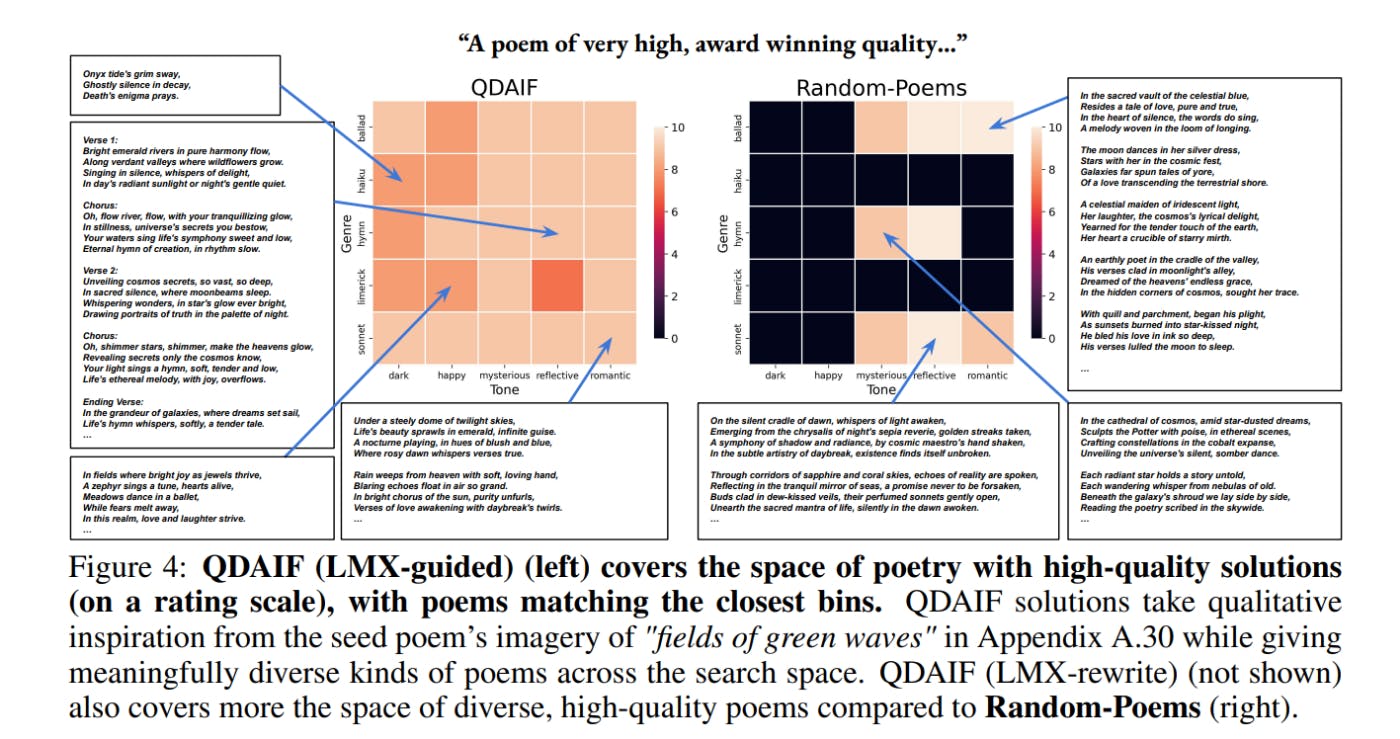348 reads
Revolutionizing Creative Text Generation with Quality-Diversity through AI Feedback
by
January 26th, 2024
Audio Presented by

The FeedbackLoop offers premium product management education, research papers, and certifications. Start building today!
About Author
The FeedbackLoop offers premium product management education, research papers, and certifications. Start building today!
